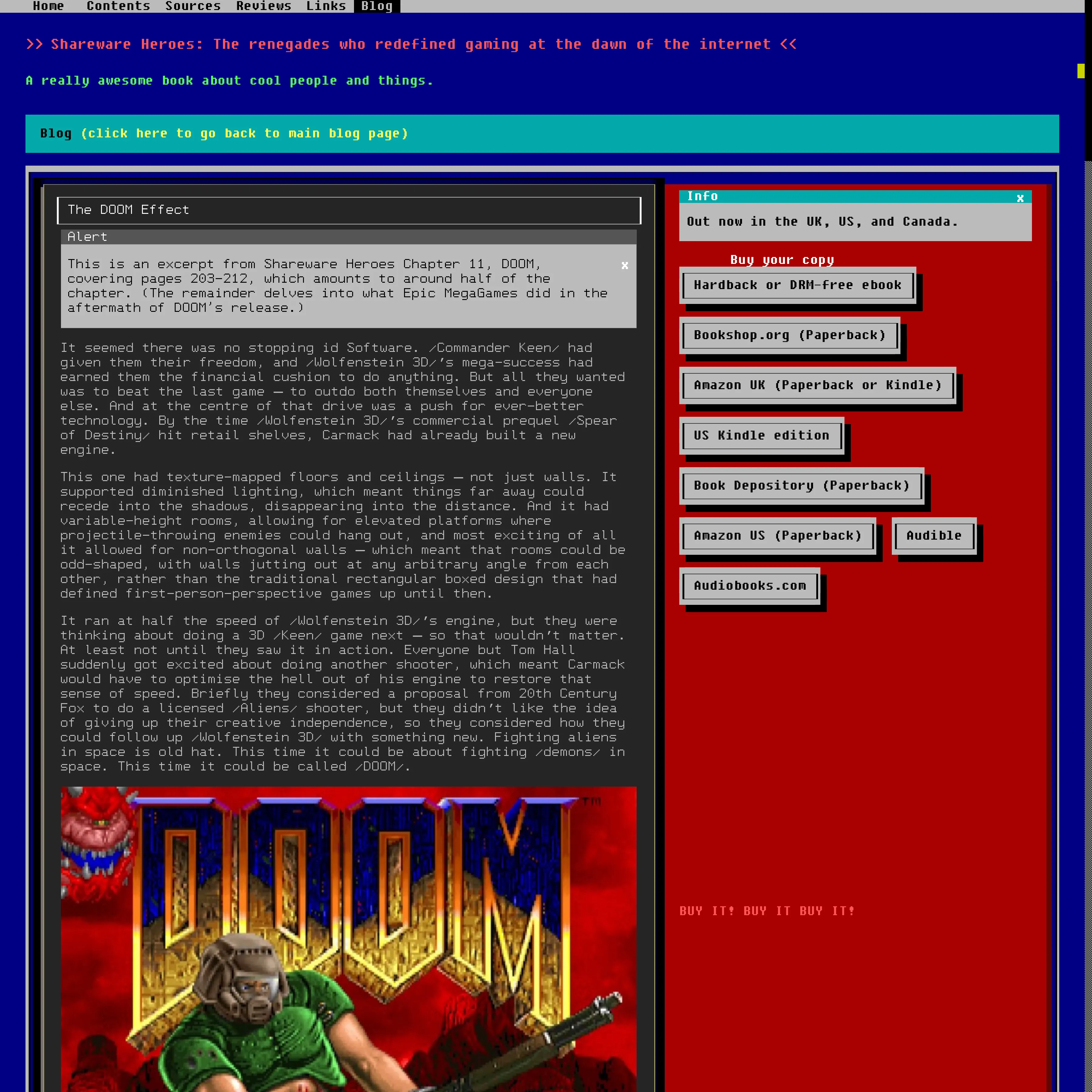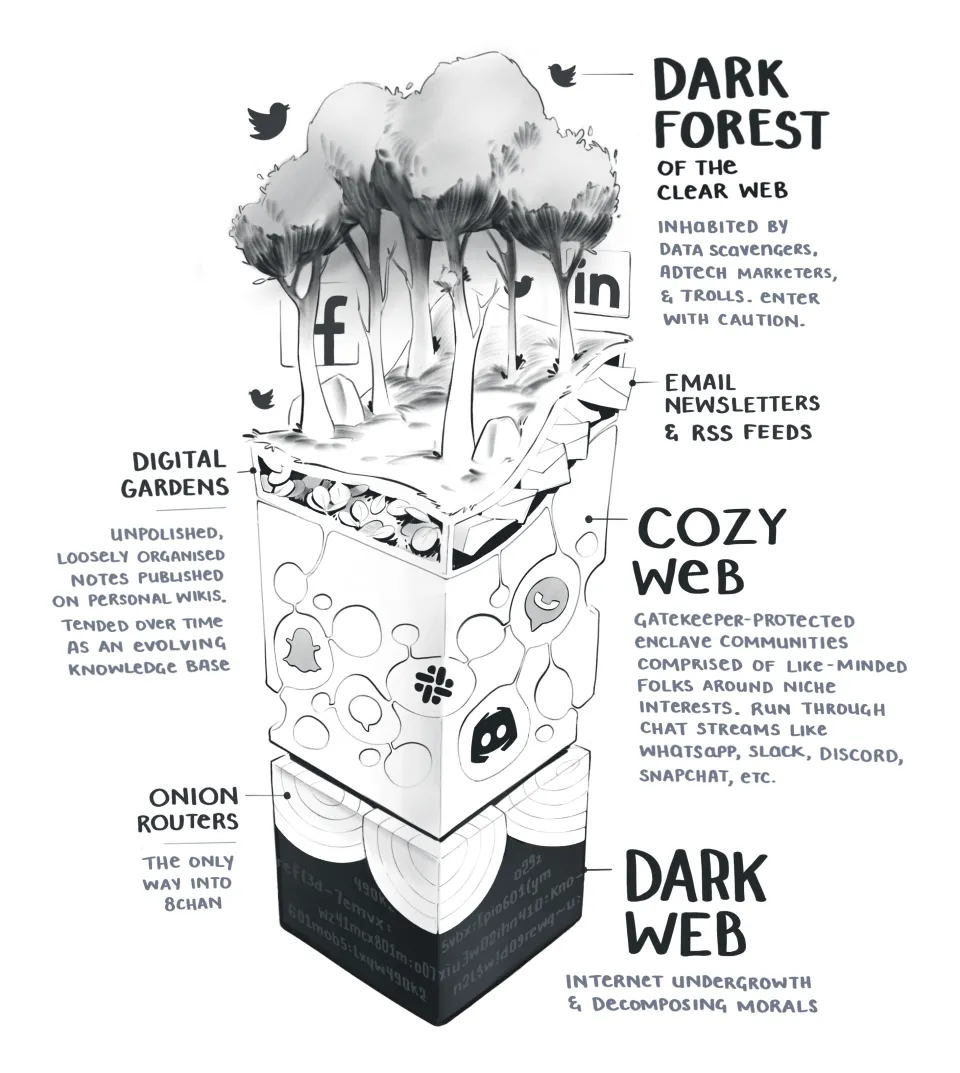Unfortunately, the current Companies House name rules – while covering copy-cats and offensive language – do not cover attempts to poison data inputs.
This is a problem, because dozens of websites, databases and other processors pull in details from Companies House – and not all of them are good at sanitising their data inputs, which can be poisoned simply with a name.
Web
The DOOM Effect
sharewareheroes.comFree chapter from the eBook Shareware Heroes. Plus the website is amazing.
The Dark Forest and the Cozy Web
maggieappleton.comBig Tech’s big downgrade
businessinsider.comIn Silicon Valley, the user’s experience has become subordinate to the company’s stock price. Google, Amazon, Meta, and other tech companies have monetized confusion, constantly testing how much they can interfere with and manipulate users. And instead of trying to meaningfully innovate and improve the useful services they provide, these companies have instead chased short-term fads or attempted to totally overhaul their businesses in a desperate attempt to win the favor of Wall Street investors.
Floor796
floor796.comthe html review
thehtml.reviewAnnual collection of html curiosities.
Web browsers over the last 28 years
youtube.comSomething Pretty Right: A History of Visual Basic
retool.comCoolest website i’ve seen a quite a while.
I Made an Internet Time Machine
youtube.comChildish Font Sizes
cloudfour.comThese days, the arguments for a 16-pixel baseline are widely accepted: We have plenty of data supporting its readability, it can prevent unintentional zoom in mobile browsers, and it’s been the default in every major browser for many years.
But there are plenty of reasons to go even larger…
Before I go: When it comes to complaining about web browsers
daverupert.comThe Complicated Futility of WordPress
coderjerk.comIt has always been an opinionated piece of software, and using it as a CMS has always meant chafing against Automattic’s assumptions about how and why their software is used.
Why Lighthouse Performance Score Doesn’t Work
calibreapp.comFor a long time, the Lighthouse Performance Score was the page speed metric to track. Often, sharing a perfect 100 Performance Score was considered a sign of success. But as the page speed evolves, we need to critically evaluate if the metrics we’re using are still relevant and helpful.






